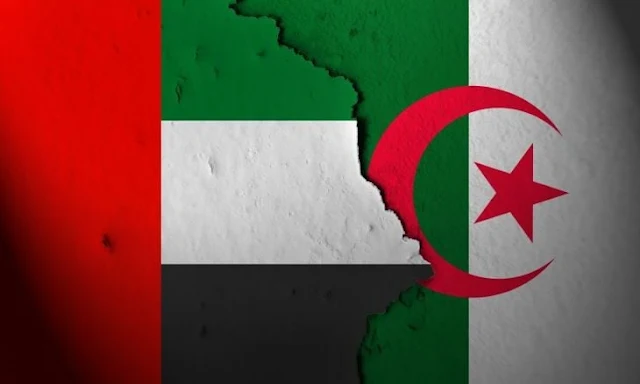On May 2nd, 2025, behind the closed doors of Abu Dhabi’s presidential palace, a high-level security meeting took place—not to discuss peace, but to plot an attack. Not a military assault, but a strategic, silent war targeting the political and media heart of one nation: Algeria.

Presiding over this covert war council was Tahnoun bin Zayed, the shadowy mastermind of Emirati intelligence. Alongside him:
- Mohammed Al Gergawi, in charge of media influence operations;
- Saeed Al Ghafli, responsible for intelligence coordination;
- and foreign consultants from the American firm GSG, a private contractor known for information warfare and strategic psychological operations.
The mission was given a chilling codename: “Disrupt Algeria.”
Why Algeria?
Because Algeria refuses to kneel. Because it acts with independence in Sudan, partners with Turkey and Qatar, and openly opposes Emirati interference in Libya. In Tahnoun’s own words during the meeting:
“Algeria is moving in Darfur, aligning with Turkey and Qatar, and challenging our influence in Libya. If we don’t destabilize it now, we’ll lose North Africa.”
This isn’t about diplomacy. This is about imperial ambition and a deep frustration with Algeria’s resistance to subjugation.
The “Disrupt Algeria” Plan
The operation is a three-pronged strategy:
1. Media Warfare
- Revive old corruption narratives.
- Flood the digital space with misinformation linking Algeria to terrorism and Iranian arms.
- Use Western media platforms to push this manufactured narrative.
2. Diplomatic Sabotage
- Present Algeria as a “failing state” to regional and international bodies.
- Promote the idea of an “oppressed minority” within Algeria to justify future interventions.
3. Co-opted Algerian Voices
- Amplify exiled or disaffected Algerians in Dubai and Abu Dhabi.
- Stoke internal divisions, particularly on cultural and linguistic identity.
- Use paid “opinion makers” to undermine national unity from within.
Algeria Must Respond with Force and Clarity
This is not an isolated campaign—it is the continuation of a wider war on Algeria, launched years ago through paid media and now formalized in an intelligence blueprint.
In response, Algeria must:
- Mobilize its diplomacy to expose the UAE’s destabilization agenda;
- Strengthen its cyber and media defenses to protect national sovereignty;
- Neutralize domestic actors who knowingly serve foreign interests.
A Nation Born in Fire Does Not Fear Flames
Those who believe Algeria can be broken with tweets, lies, and traitors in rented studios forget one crucial truth: we are the nation of one and a half million martyrs.
Our unity is not a slogan.
Our sovereignty is not negotiable.
Our response will not be mild, but historic.
To those plotting in the shadows: Algeria is not for sale. Whoever wagers on its downfall will be struck by the fury of a free and proud people.
By Belgacem Merbah
Comments
Post a Comment